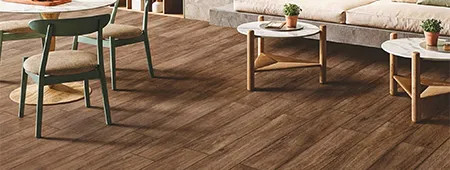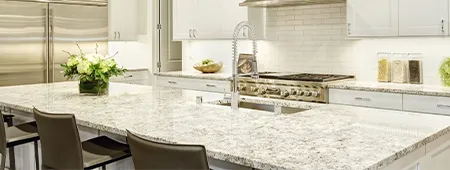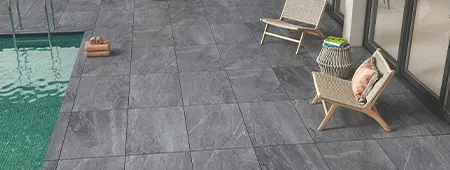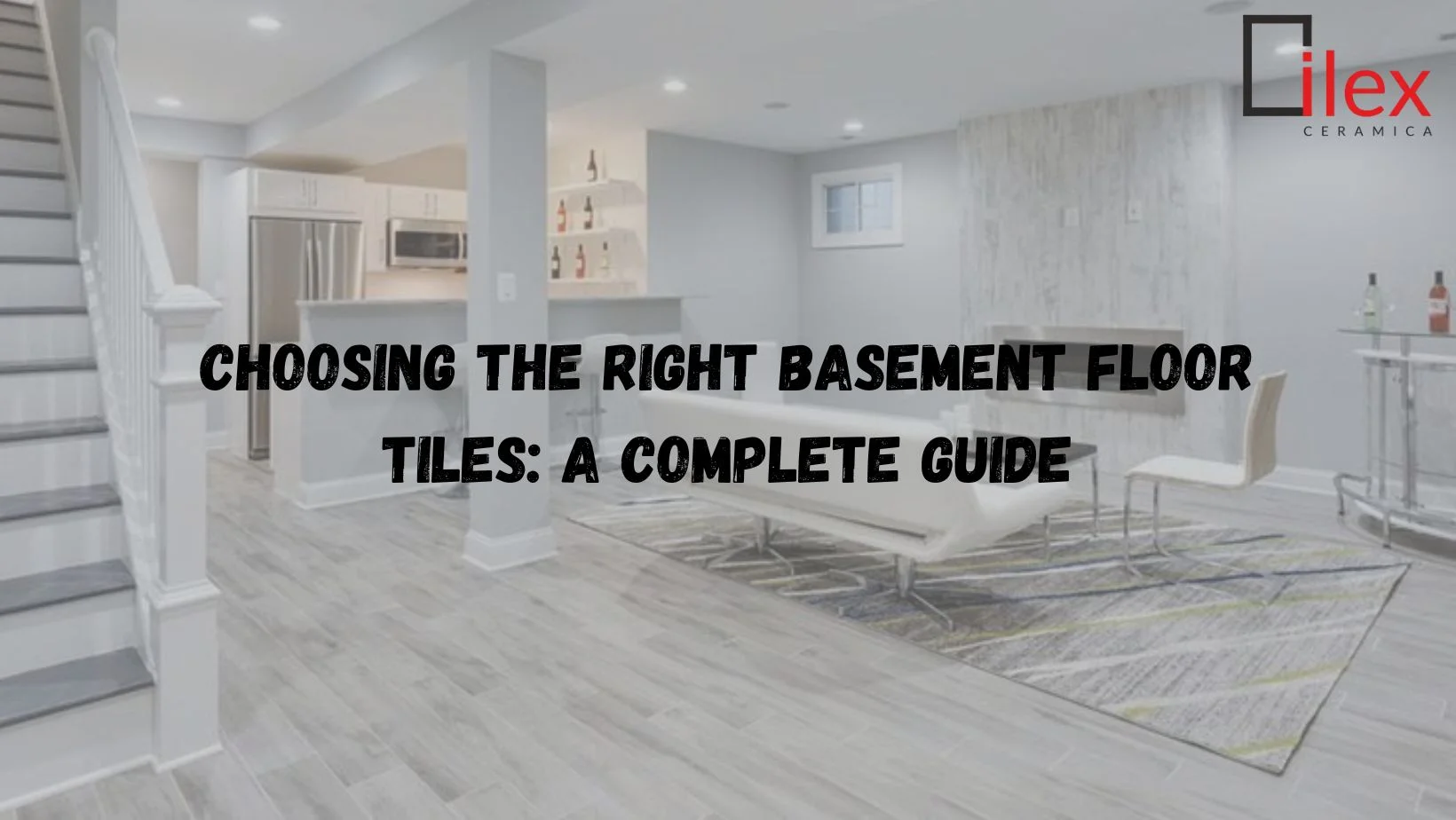09 September, 2024
This often overlooked versatile space can be anything from a cozy family room to a home office, gym, or even a guest suite. What completely changes this underused area into one of serviceable and comfortable living space is the kind of flooring that can be installed. Since basement environments have special conditions—high humidity, probable issues with water, and temperature changes—the tiles for basement floors should be chosen with utmost care. This comprehensive guide will help you on how to consider factors when choosing basement floor tiles, the best basement tiles, and installation tips that ensure long-lasting results.
Factors to Consider When Choosing Basement Floor Tiles
1. Moisture Resistance
Since basements are underground, they tend to be very damp. Water may infiltrate the floors and walls and cause a number of issues from mold, mildew, to structural weakness. As such, in basement flooring, the first consideration should be water resistance. Choose basement floor tiles that are impervious to water and won't bend or crack in damp situations.
2. Durability
Since the basement floor is exposed to massive foot traffic, especially if children use it as a play area or if it serves as a home gym, the flooring material has to be highly resistant. Ceramic, porcelain, natural stone, and other materials from which tiles are made are very hard and highly durable.
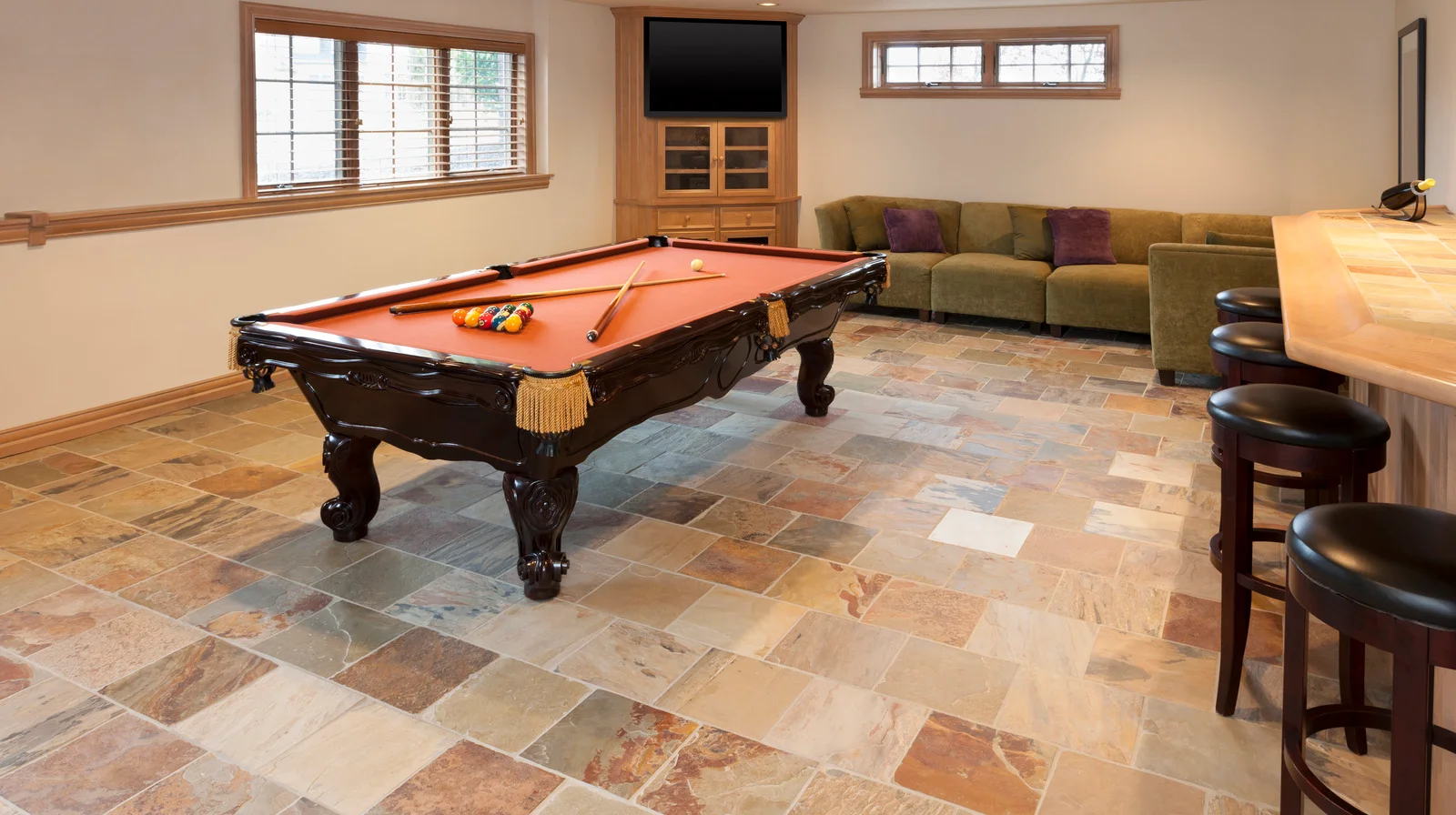
3. Insulation
Basically, basements are cold, so insulation is a factor that should be considered the most. Some tile materials always feel cold to the feet, such as natural stone, whereas others like vinyl or cork have relatively better insulation properties. An underlayment beneath the tiles can add warmth and comfort to the finished floor.
4. Aesthetics
The design for your basement floor, coupled with the kind of use the basement is going to get, will be some of the factors that control the choice of floor tiles. If you are after a modern look with a clean finish, porcelain tiles with a polished finish might just do the trick. If you are looking at creating a rustic or warm atmosphere, then it could be natural stone tiles or wood-look tiles resembling hardwood flooring.
5. Cost
The budget is always key in every home improvement. Basement floor tiles have different costs regarding the material, size, and design. After all, there will be a balance between your expectations of having high-quality tiles, which can please anyone's taste, and what you are able to afford.
Best Types of Basement Floor Tiles
Now that you understand the factors to consider, let's explore some of the best types of tiles for basement flooring.
1. Ceramic Tiles
Ceramic tiles are another popular choice for basement flooring since they are water-resistant, durable, and budget-friendly. They are available in a huge variety of colors, styles, and patterns to be suited to your individual taste in decoration. Also, ceramic tiles are easy to clean and maintain; hence, they are pretty practical for those places with heavy traffic.
2. Porcelain Tiles
While porcelain tiles are similar to ceramic tiles, they are more compact, impervious, and stronger. Thus, in places where the levels of moisture can be higher, like basements, this becomes an excellent choice. Another reason is that porcelain tiles come in different finishes, such as matte, glossy, and textured. This gives you a chance to achieve the kind of look you want to have in your basement. The strength and resistance to wear make them suitable for basements that will see heavy use.
3. Vinyl Tiles
Another great basement flooring option is vinyl tiles, mostly for people who are on a really tight budget. Vinyl is water-resistant, durable, soft on the feet, and really warms up the cold basement spaces, even offering some insulation. Vinyl tiles come in several designs stylized to resemble either natural wood or stone, which will offer the cheapest alternative in the costlier material inventory.

4. Luxury Vinyl Tile (LVT)
Luxury Vinyl Tile, or LVT, takes vinyl flooring to a new level for durability and very realistic designs that mimic wood, stone, or ceramic tile. The LVT is resistant to water and easy to lay; often, it allows for installation without a professional because of its click-lock system, making it quite feasible as a DIY project. Its soft, cushioned surface underfoot provides comfort, which has made it a favorite for basement finishes when owners are looking to create additional living space.
5. Natural Stone Tiles
For high-end, luxury finishing, slate, travertine, or even granite natural stone tiles are outstanding. Such materials are very resistant and will add elegance to any room. On the other side, natural stone tile can be rather expensive and might need to be sealed in order to protect them from penetration by water. They are also colder underfoot; hence, consider using an underlayment or area rugs for added comfort.
6. Cork Tiles
Another basement floor covering that highly reflects the natural insulation and soundproofing capabilities is cork tiles. Cork is soft, thus comfortable to walk on, and will give a warm, inviting feel to the room. It's also resistant to mold and mildew and hence can work perfectly in a basement. On the other hand, cork is less resistant compared to other materials; therefore, it requires frequent maintenance, like resealing, to protect it from moisture.
7. Rubber Tiles
Rubber tiles are an excellent solution for basements that double as home gyms or playrooms. They are hard-wearing and water-resistant, providing good cushioning to hugely reduce the chance of injury from falls. Other than being very resilient, they are also obtainable in different colors and patterns to add much fun into the atmosphere. They are also very easy to set up and clean, hence ideal for areas with high activities.
Installation Tips for Basement Floor Tiles
Once you've chosen the right tiles for your basement, proper installation is key to ensuring their longevity and performance.
1. Prepare the Subfloor
Before the tile installation process, one must ensure that a subfloor is prepared. Ensure that the surface is clean, dry, and even. In case there are uneven spots, you should apply some self-leveling compound on the floor to smoothen it. If you have concerns about the moisture, you can apply a moisture barrier or underlayment to prevent water from getting into the tiles from underneath.
2. Use the Right Adhesive
Perhaps the most important step in tile installation is the selection of adhesive. In the case of a basement, where temperature fluctuations are common, a latex-modified thin-set mortar with strong adhesion and flexibility to accommodate this movement is used.
3. Seal the Tiles
In the event that porous materials are to be used, such as natural stone or cork, sealing the tiles will help prevent them from soaking up any liquid that could stain the floor. Just make sure to follow the manufacturer's recommendation on the type of sealer to be used and how often to reapply it.
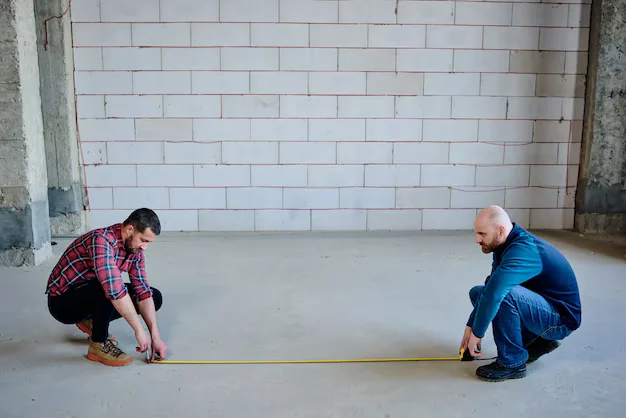
4. Allow for Expansion
Temperatures can fluctuate in basements, which can affect the tile, causing it to expand and contract. Therefore, place a small gap around the perimeter of the room to allow for this expansion to help prevent cracking or shifting; this gap can then be covered with baseboards or trim to finish it off.
5. Consider Professional Installation
While some tile installations can be DIY projects, flooring for basements may require special attention. This is due to the concern for moisture and possible uneven subfloors. If you are in doubt about your competence or if you need to get the best results, consider hiring a professional for the installation.
Ilex Ceramica: Leading Manufacturer and Exporter of Floor Tiles
The right basement floor tile really comes down to partnering with a reputable manufacturer. Ilex Ceramica is one of the most reputed manufacturers and exporters of excellent quality Floor Tiles in different sizes, patterns, and finishes. Be it the strength of porcelain, the affordability of ceramic, or the luxury of natural stone, Ilex Ceramica offers a wide range to fulfill all your requirements.
Ilex Ceramica has been dedicated to the ideal of quality and new ideas in producing tiles that not only satisfy the aesthetic component but also display brilliant performance in difficult environments such as basements. Their products fight moisture, resist the heaviest footsteps, and give long-lasting beauty and performance.
Conclusion
Tile Selection includes extra factors such as moisture resistance, durability, insulation, aesthetics, and cost. Having tile based on these criteria and following proper installation practices can easily transform your basement into a workable and attractive space that adds value to the house. From vinyl's ease on the budget to the hardiness of porcelain, or the luxurious beauty of natural stone—whatever you decide—the right basement flooring really can increase your home's overall appeal and comfort level. Partner with a trusted brand like Ilex Ceramica to be sure of choice and quality in the variety of tiles to suit your taste and functional needs.

